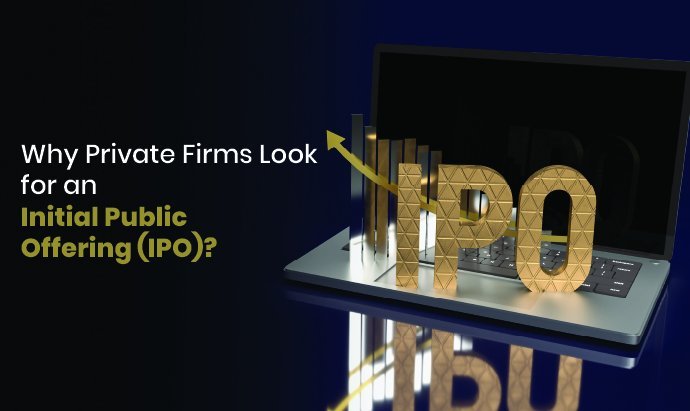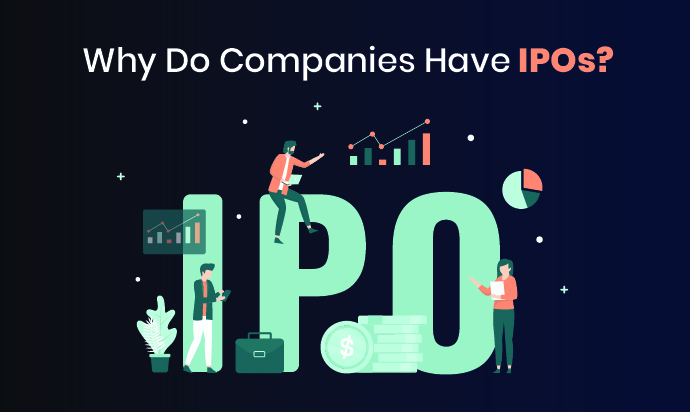
TABLE OF CONTENTS
Going public is a complicated, time-consuming process that most firms find challenging to do on their own. In order to satisfy the Securities and Exchange Commission (SEC), which supervises public firms, a private company considering an IPO must not only prepare for a large increase in public scrutiny, but also produce a mountain of paperwork and financial reports.
Due to which private firm thinking about going public engages an underwriter, usually an investment bank. To advise them on the IPO and assist them in determining an initial price. Sponsors assist management in making for an IPO by enlisting important investor papers and scheduling meetings with potential investors.
The sponsor issues shares to investors and the business's stock begins trading on a public stock exchange, such as the New York Stock Exchange (NYSE) or the Nasdaq, once the corporation and its consultants have decided on an initial IPO price.
Why Do Companies Have IPOs?

Although an initial public offering (IPO) is the first time the general public can buy stock in a firm, it's important to note that one of the IPO's goals is to allow early investors to cash out their investments.
Think about an IPO as it is the end of one stage in a company's life cycle and the beginning of another. Several of the first investors wish to attain their money out of a new venture or start-up. Investors in more established private companies that are going public might prefer to sell some or all of their shares.
“The fact is that there is a friends and family round, and there are some angel investors that got in first,” says Matt Chancey, a CFP in Tampa, Fla. “A lot of private money—Shark Tank money, for example—goes into a firm before it goes public.”
Obtaining financing and enhancing a company's public visibility are two further reasons for an IPO:
- Firms can make money by selling stock to the general public. The funds could be used to expand the business, fund R&D, or pay off debt.
- Other sources of money, such as venture capitalists, private investors, or bank loans, may be too expensive.
- An initial public offering (IPO) can provide a company with a lot of exposure.
- Companies may seek the prestige and authority that comes with being a publicly traded corporation, which may help them obtain better funding terms.
While becoming public may make raising cash easier or less expensive for a company, it also complicates a number of other difficulties. There are disclosure requirements, such as the filing of quarterly and annual financial reports.
They should attend all the queries of shareholders along with the reporting requirements for stock trading by senior executives and other actions such as asset sales or acquisitions.
How can you benefit from an IPO?
A corporation has very few shareholders prior to its initial public offering (IPO). Founders, angel investors, and venture capitalists all fall under this category. During an IPO, however, the corporation sells its stock to the general public. You can become a shareholder by purchasing shares directly from the corporation.
First-Mover Advantage
This is especially true when well-known corporations launch an initial public offering. You have the opportunity to purchase the company's stock for a significantly reduced price. This is due to the fact that once the company's shares reach the secondary market, their value may skyrocket.
High Returns

Buying shares in an IPO might be beneficial if the company has the potential to grow. The company's strong fundamentals indicate that it has a decent probability of expanding. Fortunately this can be beneficial for you as well. You have a decent possibility of making money in the long run.
Listing Gains
A company's stock may be traded at a price that is higher or lower than the allotment price when it is listed on the stock exchange. Listing gains occur when the starting price is higher than the allotted price.
Due to variables such as market demand and optimistic bias, investors often expect an IPO to do well when it is listed. This, however, does not always occur. It's also possible that a stock's price will fall by the end of the first trading day.
In actuality, listing profits may not produce positive long-term returns for the investor. So, if you're a trader looking for quick profits, it can be a good fit. Long-term investors, on the other hand, should look for a company with a strong track record.
To Sum Up
For a reason, initial public offerings (IPOs) are significant events in the stock market. You have a better chance of earning good returns in the long run if you invest in the correct firm. The key, though, is to separate the good performers from the others.











let’s get started!
Get in touch today. We’re ready!